Direction (1-5): The following pie chart shows the percentage distribution of candidates who were selected in UPSI exam from six different district of UP. Study the graph carefully to answer the following questions.
Total selected candidates = 45,000
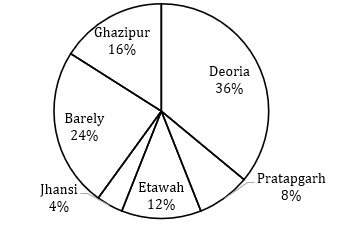
Q1. What is the difference between no. of candidates selected in UPSI exam from Ghazipur and Etawah?
(a) 1850
(b)1600
(c) 1800
(d) 1500
(e) 1700
Q2. Find the average no. of candidates who were selected in UPSI exam from Barely, Pratapgarh and Jhansi together.
(a) 5400
(b) 4500
(c) 5200
(d) 5600
(e) 4800
Q3. Total no. of candidates selected from Deoria is how much percent more than that of from Barely?
(a) 48%
(b) 45%
(c) 40%
(d) 50%
(e) 55%
Q4. Out of total selected candidates from Etawah, 20% candidates are females. Then find total candidates who are males who are selected from Etawah?
(a) 4, 420
(b) 4,320
(c) 5,320
(d) 3,320
(e) 4,230

Directions (6-10): The following bar graph shows the total no. of children from three different states of India who died due to poor nourishment in five different year. Study the graph carefully to answer the following questions.
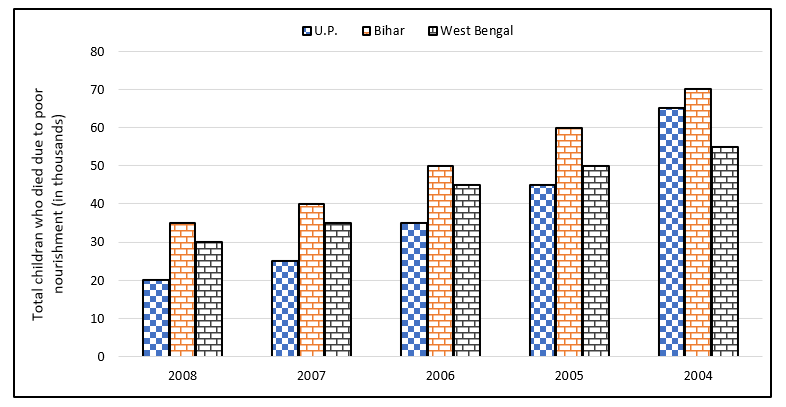
Q6. What is the average no. of children who died due to poor nourishment in Bihar over all the years together?
(a) 51,500
(b) 51,000
(c) 52,000
(d) 51,250
(e) 55,000
Q7. If the ratio of boys to girls is 5 : 3 in Bihar for each year who died due to poor nourishment then the no. of boys who died in Bihar in the year 2007 and 2005 together is approximately what percent of total no. of children who died in the same state in the same years together?
(a) 61.5%
(b) 75.75%
(c) 62.5%
(d) 60.5%
(e) 56.5%
Q8. The no. of children who died in West Bengal in the year 2004 and 2006 together is approximately what percent more or less than the no. of children who died in the year 2005 and 2007 together in same state?
(a) 18% more
(b) 18% less
(c) 12% more
(d) 12% less
(e) 27% more
Q9. What is the difference between total no. Of children who died in all the three states together in year 2004 and 2008?
(a) 1,10,000
(b) 1,05,000
(c) 1,02,500
(d) 1,01,000
(e) 1,05,500
Q10. If in year 2003, the total no. of children who died was 22% more than that of the year 2004 in all the three states and ratio of boys to girls in the year 2003 were 7 : 4 then the no. of girls who died in the year 2003 was what percent more/less than the no. of boys who died in the year 2003 in all the three states together? (up to two decimal places)
(a) 40.23%
(b) 48.26%
(c) 64.28%
(d) 42.86%
(e) 52.86%
Direction (11 – 15): The line graph shows the no. of questions asked from different topics of quantitative aptitude in two shifts of SBI clerk prelims exam. Study the following line graph carefully and answer the following questions.
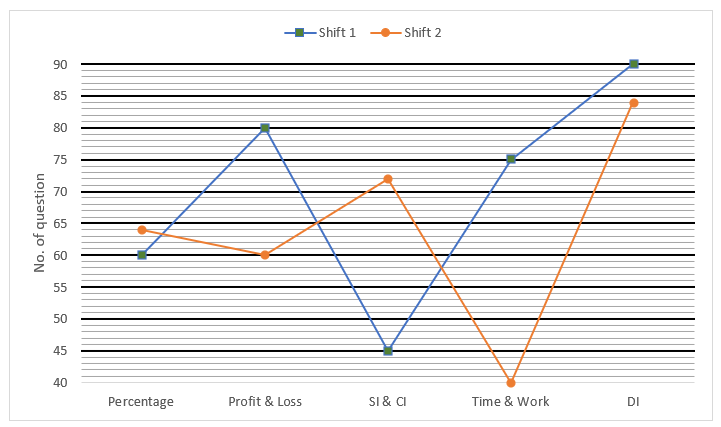
Q11. No. of questions asked in shift 1 from SI & CI is what percent of no. of questions asked from time and work in the same shift?
(a) 60%
(b) 50%
(c) 55%
(d) 64%
(e) 75%
Q12. Find the average no. of questions asked from all the given sections in shift 2.
(a) 46
(b) 64
(c) 48
(d) 68
(e) 74
Q13. What is the ratio of no. of questions asked from profit & loss and percentage together in shift 1 to the questions asked from profit & loss and time & work together in shift-2?
(a) 6 : 5
(b) 5 : 7
(c) 7 : 5
(d) 5 : 6
(e) 8 : 7
Q14. What is the difference between total no. of questions asked in both shifts from all the given sections together?
(a) 45
(b) 40
(c) 35
(d) 30
(e) 60

Solutions
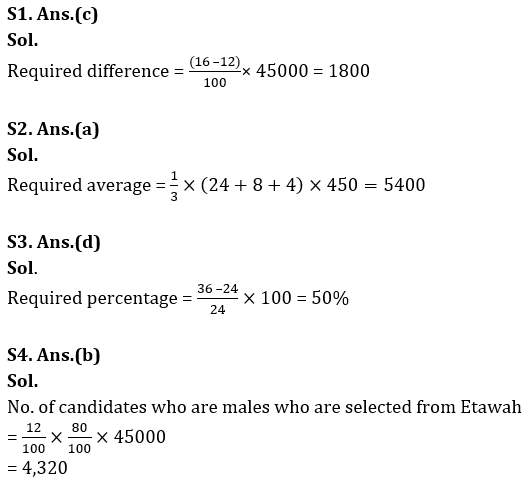
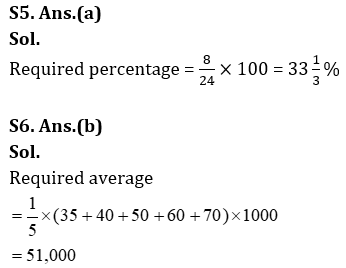
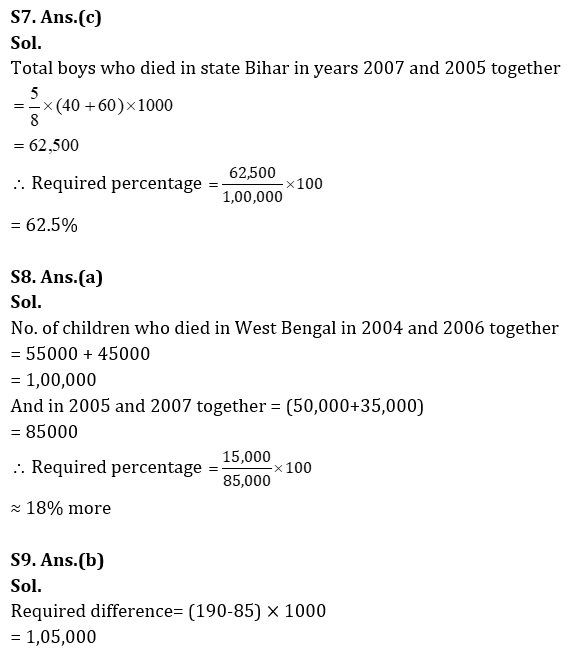
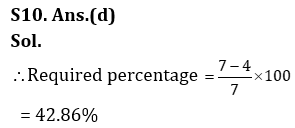
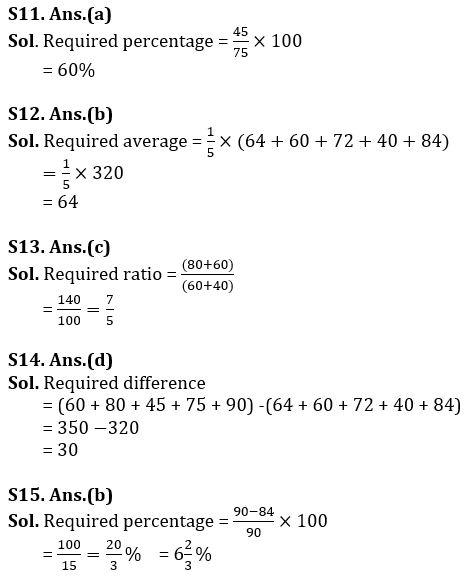



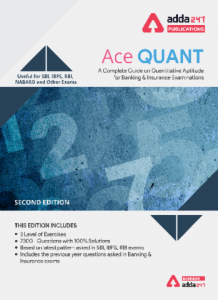

 Data Interpretation Questions for SBI PO...
Data Interpretation Questions for SBI PO...
 Data Interpretation Questions For Bank E...
Data Interpretation Questions For Bank E...
 Quantitative Aptitude Quiz For Bank Main...
Quantitative Aptitude Quiz For Bank Main...







